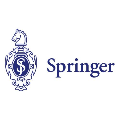In this paper, we investigate the leader election problem in diameter-two networks. Recently, Chatterjee et al. [DC 2020] studied the leader election in diameter-two networks. They presented a $O(\log n)$-round deterministic {implicit} leader election algorithm which incurs optimal $O(n\log n)$ messages, but a drawback of their algorithm is that it requires knowledge of $n$. An important question -- whether it is possible to remove the assumption on the knowledge of $n$ was left open in their paper. Another interesting open question raised in their paper is whether {\em explicit} leader election can be solved in $\tilde{O}(n)$ messages deterministically. In this paper, we give an affirmative answer to them. Further, we solve the {\em broadcast problem}, another fundamental problem in distributed computing, deterministically in diameter-two networks with $\tilde{O}(n)$ messages and $\tilde{O}(1)$ rounds without the knowledge of $n$. In fact, we address all the open questions raised by Chatterjee et al. for the deterministic leader election problem in diameter-two networks. To the best of our knowledge, this is the first $\tilde{O}(n)$ deterministic result for the explicit leader election in the diameter-two networks, that too without the knowledge of $n$.
翻译:在本文中,我们调查了直径2网络中的领导人选举问题。最近,查特杰等人(DC 2020)在直径2网络中研究了领导人选举问题。他们提出了一个美元(log n) 美元(log n) 美元(mintlibit) 领导人选举算法,该算法产生了最佳的美元(n) 美元(log n) 信息,但是他们的算法的一个缺点是,它需要了解美元。一个重要的问题 -- 能否取消对美元知识的假设,在他们的论文中保留了。他们提出的另一个有趣的公开问题是: 领导人选举能否通过 $\ tilde{O} (n) 确定性信息。在这个文件中,我们给出一个肯定的答案。此外,我们解决了 $ (n) 美元(n) 字数(n) 美元(n) 和 $($) ($) (o) ($) ($) 美元) (l) ($) ($) ($) ($) ($) ($) ($) ($) ($) ($) ($) ($) ($) ($) ($) (c) ($) ($) ($) ($) (The) ($) (The) (r) (r) (r) (r) (r) (r) (r) (r) (r) (r) (r) (r) (r) (r) (r) (r) (r) (r) (r) (r) (r) (r) (r) (r) (r) (r) (r) (r) (r) (r) (r) (r) (r) (r) (r) (r) (r) (r) (r) (r) (r) (r) (r) (r) (r) (r) (r) (r) (r) (r) (r) (r) (r) (r) (r) (r) (r) (r) (r) (r) (r) (r) (r) (t) (r) (r) (r) (r) (n) (r) (r) (r) (a) (a) (a) (a) (a) (n)




